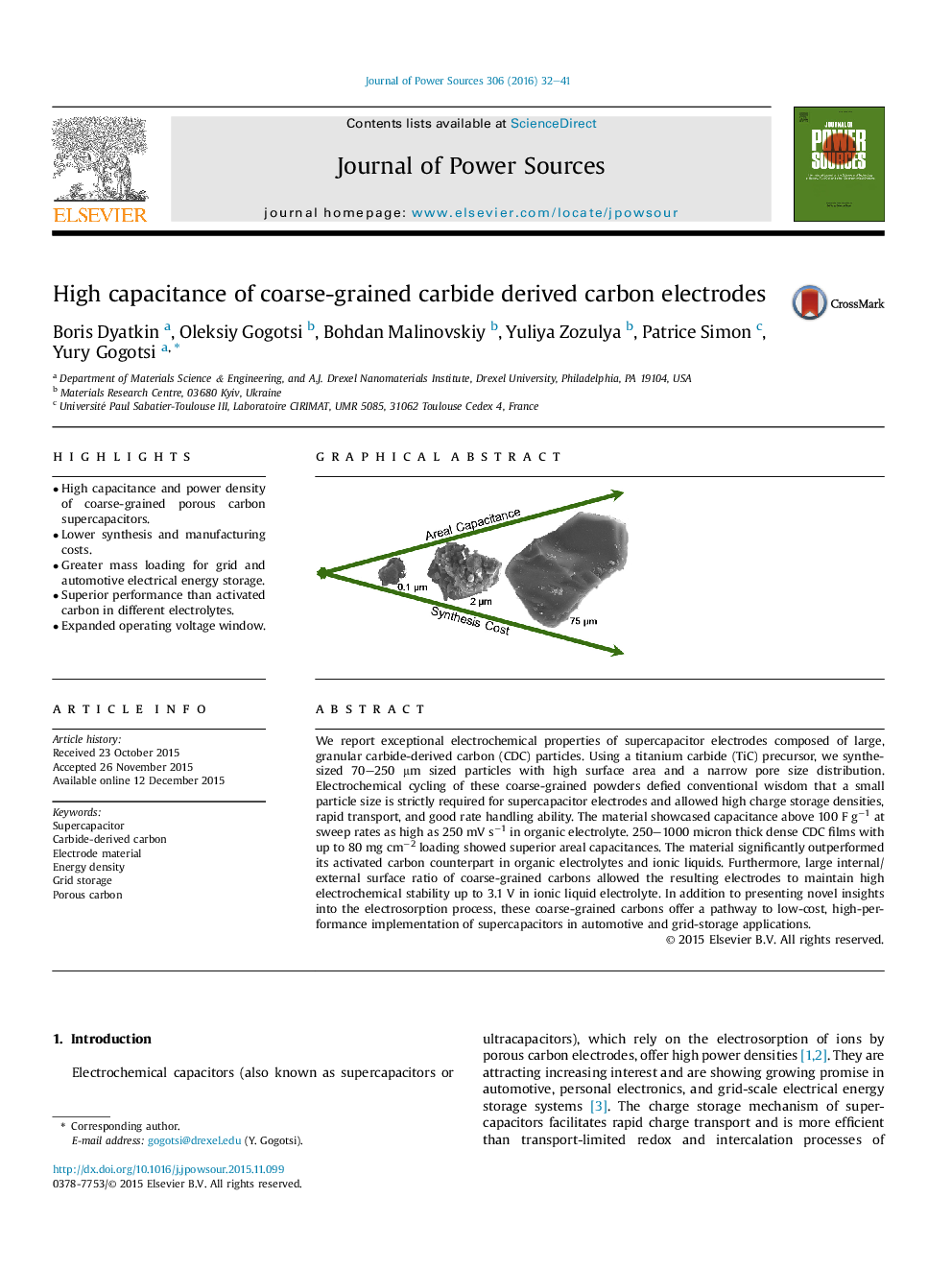| Article ID | Journal | Published Year | Pages | File Type |
|---|---|---|---|---|
| 1292412 | Journal of Power Sources | 2016 | 10 Pages |
•High capacitance and power density of coarse-grained porous carbon supercapacitors.•Lower synthesis and manufacturing costs.•Greater mass loading for grid and automotive electrical energy storage.•Superior performance than activated carbon in different electrolytes.•Expanded operating voltage window.
We report exceptional electrochemical properties of supercapacitor electrodes composed of large, granular carbide-derived carbon (CDC) particles. Using a titanium carbide (TiC) precursor, we synthesized 70–250 μm sized particles with high surface area and a narrow pore size distribution. Electrochemical cycling of these coarse-grained powders defied conventional wisdom that a small particle size is strictly required for supercapacitor electrodes and allowed high charge storage densities, rapid transport, and good rate handling ability. The material showcased capacitance above 100 F g−1 at sweep rates as high as 250 mV s−1 in organic electrolyte. 250–1000 micron thick dense CDC films with up to 80 mg cm−2 loading showed superior areal capacitances. The material significantly outperformed its activated carbon counterpart in organic electrolytes and ionic liquids. Furthermore, large internal/external surface ratio of coarse-grained carbons allowed the resulting electrodes to maintain high electrochemical stability up to 3.1 V in ionic liquid electrolyte. In addition to presenting novel insights into the electrosorption process, these coarse-grained carbons offer a pathway to low-cost, high-performance implementation of supercapacitors in automotive and grid-storage applications.
Graphical abstractFigure optionsDownload full-size imageDownload as PowerPoint slide
